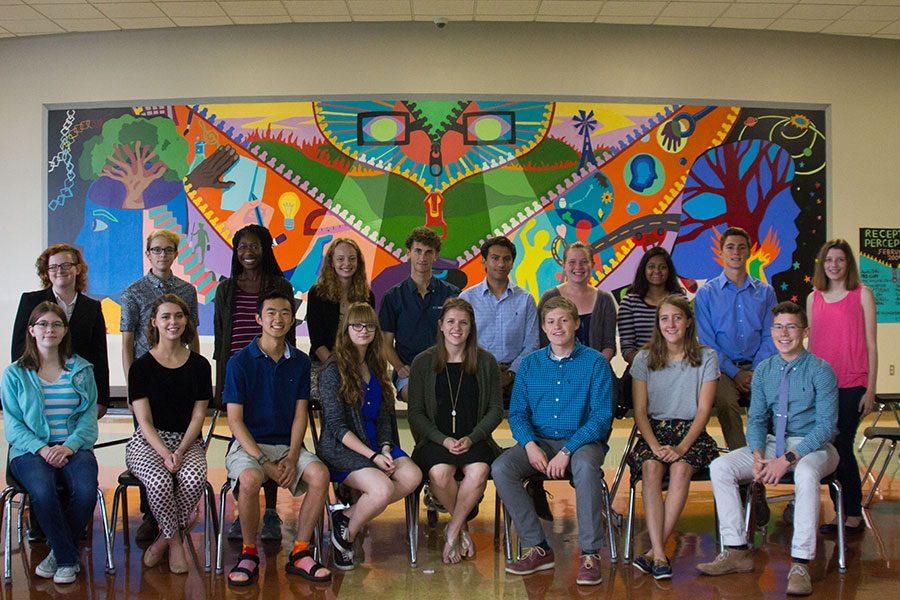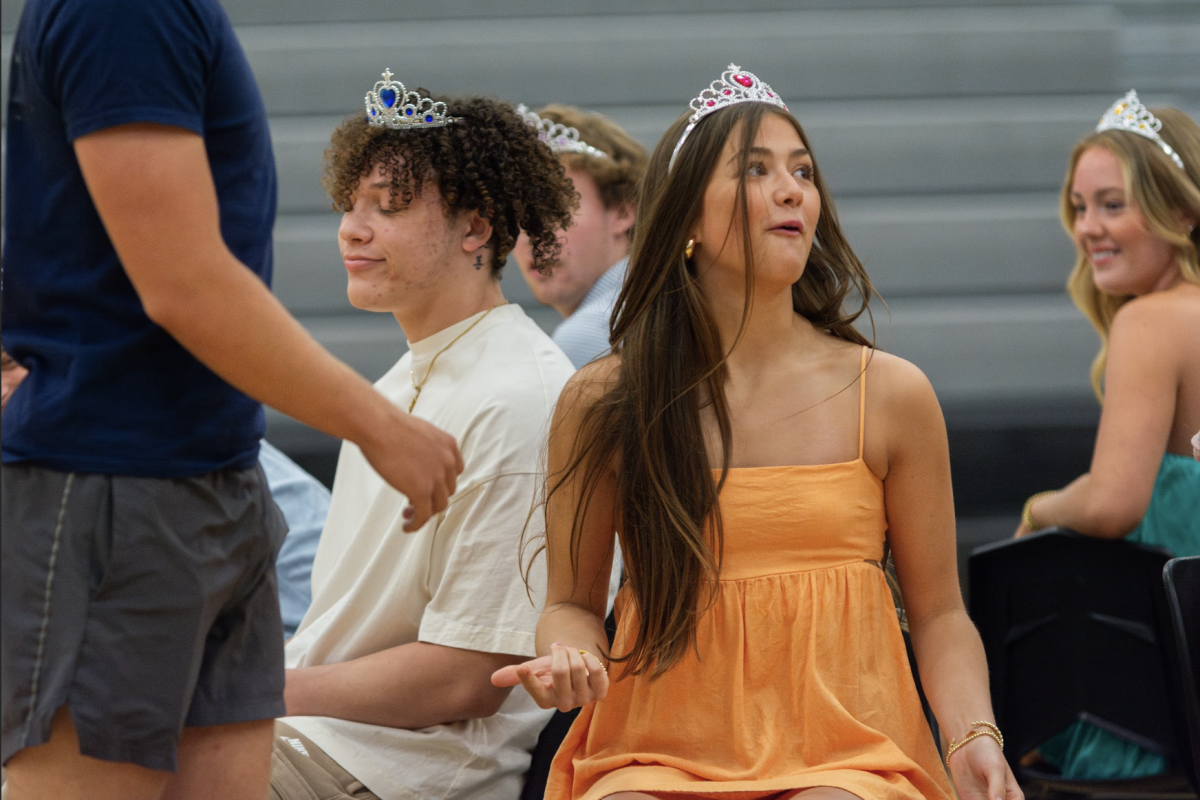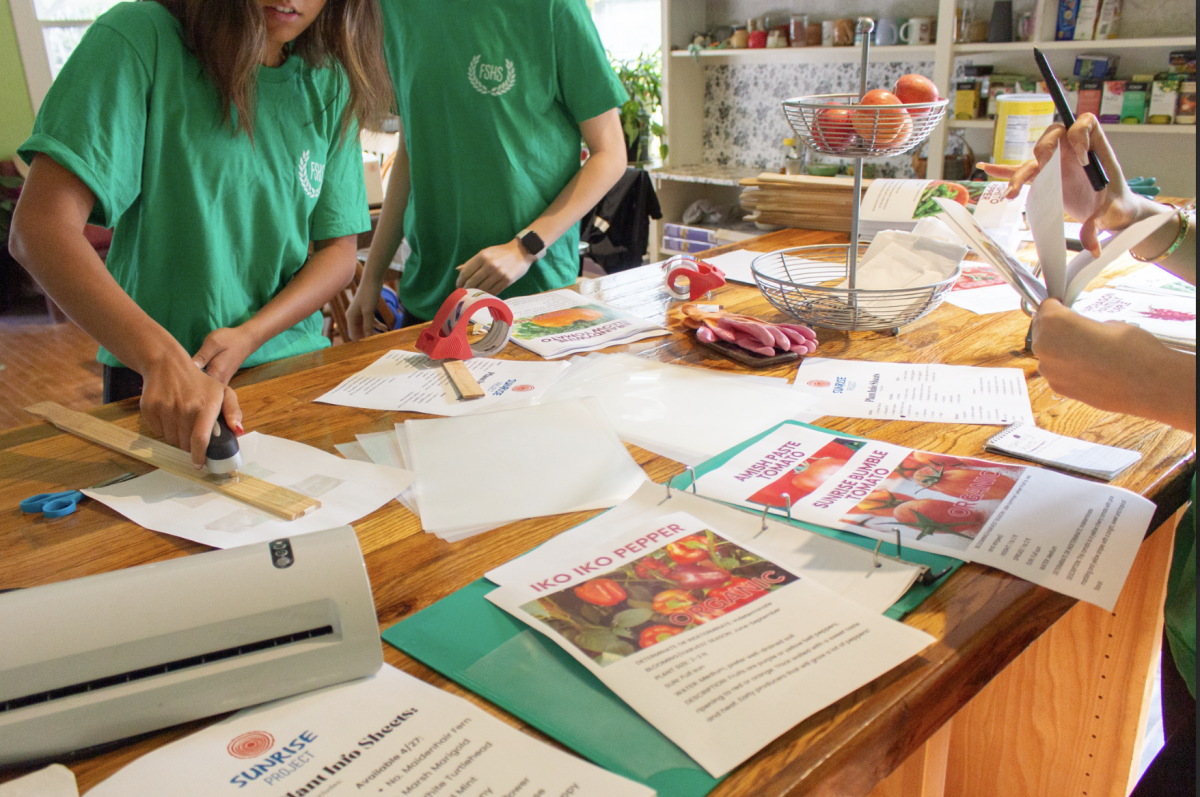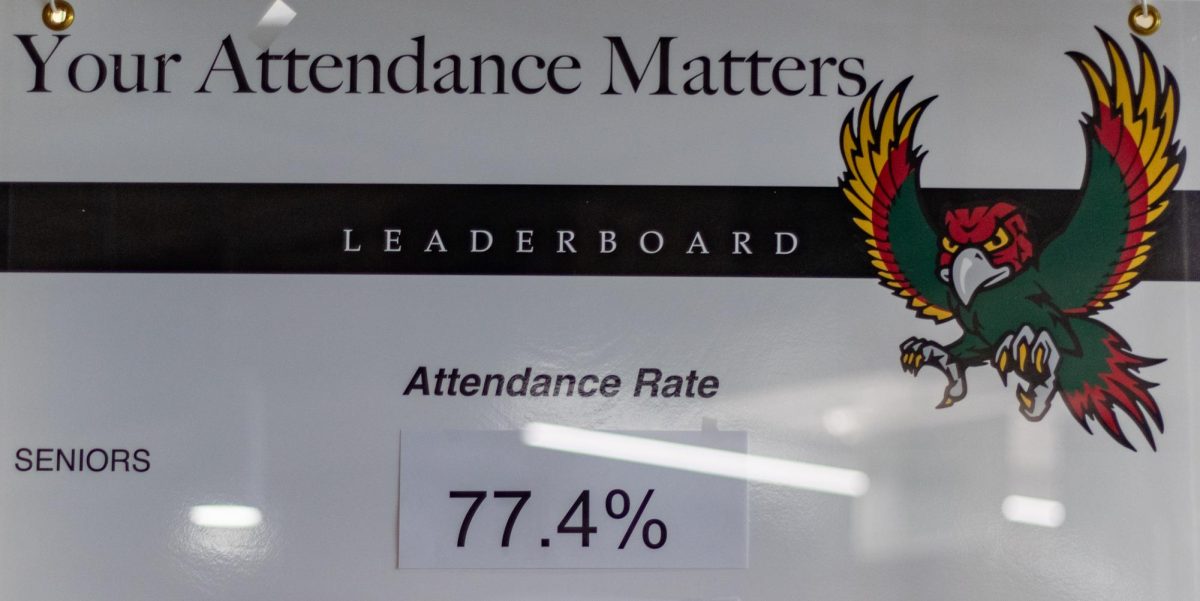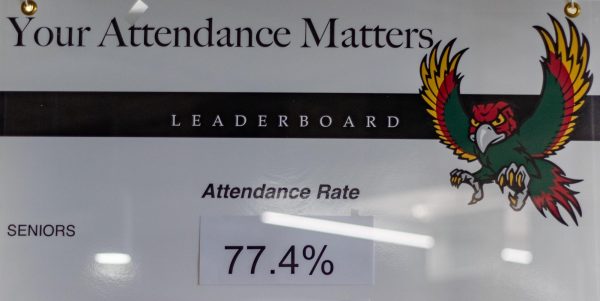Record number of Free State National Merit Semifinalists announced
National Merit Semifinalist seniors, Erin Schel, Lane Weis, Abena Peasah, Hazel Scott, Calvin Yost-Wolff, Sayuz Thapa, Mary Reed-Weston, Tarini Singh, Ian Putz-Earl, Cailyn Zicker, Sarah Mechem, Adelaide Wendell, Jialun Wang, Paige Lawrence, Katie Lane, Jonathan Leslie, Charlotte Crandall, and Michael Braman gather to recognize their achievements. Free State had its largest number of National Merit Semifinalist 17 students in total. “I figured we would have a good number (…) it’s nice to see the kids you work with succeed,” Advisor Larry Wolf said.
September 14, 2016
“I was so excited, like not just for myself, but for everyone, I was so excited for my friends that got in, I was so excited to see them come into the room,” semifinalist Erin Scherl said. “Like, ‘we did it guys!’”
The College Board announced Wednesday morning, September 14th, that Scherl and 16 other Free State seniors had been accepted as National Merit Semifinalists. Out of the 18 students who qualified as semifinalists in the district, 17 were enrolled at Free State. This year, more students became semifinalists than any other year in school history and tied for the most from one school in the state of Kansas.
“I figured we would have a good number [of semifinalists], of course you never know that exact number ‘till the cut off date,” enrichment teacher Larry Wolf said. “It’s nice to see the kids you work with succeed.”
The National Merit Scholarship Corporation recognizes the top one-half percent of students who took the PSAT. In Kansas, semifinalists must receive a score of 217 or above on the test.
“The goal of the National Merit Scholarship Corporation is to have the same percentage of students in each state qualify,” Wolf said, “Our cut off this year in Kansas was a [score of] 217 on the PSAT…They set it wherever they need to to keep the same percentage of qualifiers.”
Wolf stated that Kansas’s cut off is relatively higher than other states because the state produces more qualifiers each year. This year’s cutoff was twice as high as last year’s.
“A lot more students would have become semifinalists,” semifinalist Hazel Scott said. “This year, the bar was set super high…Instead of 17 students, we would have had 25.”
Even though the semifinalist seniors still have to qualify as finalists to be accepted into the National Merit Scholarship Program, guidance counselor Joel Frederick is confident that all 17 students will become finalists.
“This is a really good group of students,” Frederick said. “I don’t see why they wouldn’t [become] finalists.”
Becoming a finalist means being eligible for several scholarships awarding thousands of dollars from the National Merit Corporation or direct scholarships from certain universities. For example, the University of Kansas offers finalists scholarships up to $10,000 every year as long as their GPA stays above a 3.5.
“Very few scholarships are awarded below a [GPA of] 3.5, and that includes the National Merit,” Wolf said. “If you’re below 3.5, you’re not going to move beyond semifinalist status.”
Big scholarships could give seniors new opportunities and relief as they plan for college. Hazel Scott, who has already applied for several colleges and is visiting more in the following months, believes that becoming a finalist will assist her ambitious plans.
“I am less worried about where I am going to college, because [being a finalist] looks great on applications and I get some money for it,” Scott said. “I wouldn’t have to worry about those aspects.”
Even semifinalists who currently do not have big plans for college are thankful for the chance to be relieved of student debt.
“It’s a little bit less monetary stress.” Scherl said. “Honestly, I’m in a position where I don’t have a lot of college plans, but it’ll have a positive impact”


